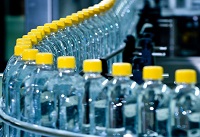Polymers Petrochemicals Polyester Sustainability 15-03-2019 - Arhive
- China – Polyethylene Terephthalate
PET and its chain continue to be weak, with exception of PX.
- Polyamide6 and its chain continue to be steady.
PET Bottle grade export 1,065/1,100 $/ton – PET Bottle grade domestic market 8,300/8400 yuan/ton – PET Filament grade SD domestic market 7,750/7,900 yuan/ton – PET Filament grade BR domestic market 7,800/7,900 yuan/ton
PTA Taiwan 855/865 $/ton – PTA domestic market 6,500/6,600 yuan/ton – MEG $ 635/645 $/ton – MEG domestic market 5,100/5,200 yuan/ton – PX Korea 1,090/1,100 $/ton
POY 150D/48F domestic market 8,750/8,850 yuan/ton – DTY 150D/48F domestic market 10,500/10,600 yuan/ton – PSF domestic market 8,850/8,950 yuan/ton
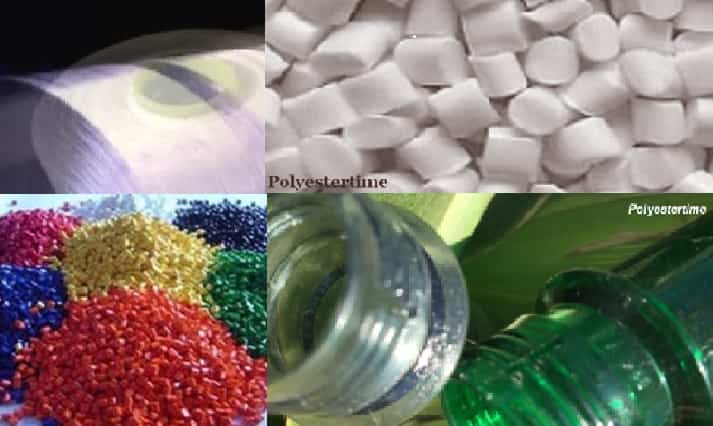
Crude Oil Prices Trend

The United States will likely extend the Iran sanction waivers that it granted eight countries importing crude from Iran, but will demand that they reduce their intake of the commodity, sources with knowledge of the matter told Reuters.
The ultimate goal of Washington remains the same: reduce Iranian oil exports to zero in hopes this will topple the government. However, for the time being, the Trump administration will ask major Iran oil importers to reduce the amount of crude they buy from the sanctioned country.
The figure Washington is aiming at is below 1 million bpd, which means a cut by some 250,000 bpd. Iran’s biggest oil clients are India and China.

Staeger wants to use British plastics made from British waste
Transparent packaging producer Staeger Clear Packaging is to start sourcing recycled PET (rPET) from the UK instead of overseas, as the company looks to protect its lines of supply in the event of a disorderly Brexit, but also to encourage the UK recycling industry to produce better quality recyclate, and more of it.
The converter, which is based in Coventry, has historically sourced its rPET from mainland Europe, where Staeger was happy with the quality of the material and the food contact credentials dictated by the likes of retailer Marks & Spencer and EU legislation.
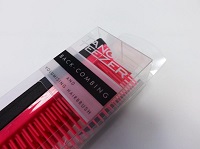
The UK government is to drop trade tariffs on chemicals and polymers to an average of 0.1% for a year in the event of a no-deal Brexit, removing most tariff protection for UK chemical producers.
The move follows another rejection by the UK’s Parliament late on Tuesday of Prime Minister Theresa May’s Brexit Withdrawal Agreement, which could increase the likelihood of a no-deal exit from the EU. Although Parliament is to hold another vote on Wednesday which could approve a motion to avoid a no-deal Brexit, the default legal position remains that the UK leaves the EU on 29 March with or without a deal. Any extension to the exit date would have to be approved by the EU 27.
Many European politicians have insisted there can be no extension unless the UK Parliament – which is deeply divided on the issue – can agree a position on Brexit. Under World Trade Organisation (WTO) Most Favoured Nation rules, if the UK drops tariffs to 0.1% for the EU, it must also do so for all other WTO members globally.

A recycling method has been developed by researchers that converts single-use plastic bottles and materials made from an ordinary polyester material into more useful products with an extended lifecycle. Their study can assist to safeguard oceans from waste of plastic by fueling the recycled plastics market.
PET (Polyethylene terephthalate) is tough but lightweight, shatterproof, and resistant to water—characteristics that make it very famous among producers. Though PET can be recyclable, the majority of the 26 million tons generated each year finishes up in landfills or somewhere else in the surroundings, where it requires hundreds of years to disintegrate.
Nevertheless, even when it is recycled, the method is away from perfect. Retrieved PET has a low worth than the actual and can only be recycled once or twice.
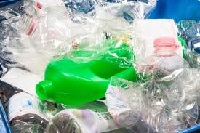
The Coca-Cola Foundation has pledged $5.4 million worth of recycling grants to programs in multiple cities in an effort to help “fix” recycling infrastructure in the U.S., as first reported by CNN Business.
An estimated $4.15 million of this funding will go toward a three-year curbside education program in Atlanta being done in conjunction with The Recycling Partnership. The stated goals are to reduce contamination by more than 25% and increase capture rates by 20% across 100,000 households. The nonprofit will also be working with local multi-family buildings, colleges and universities.
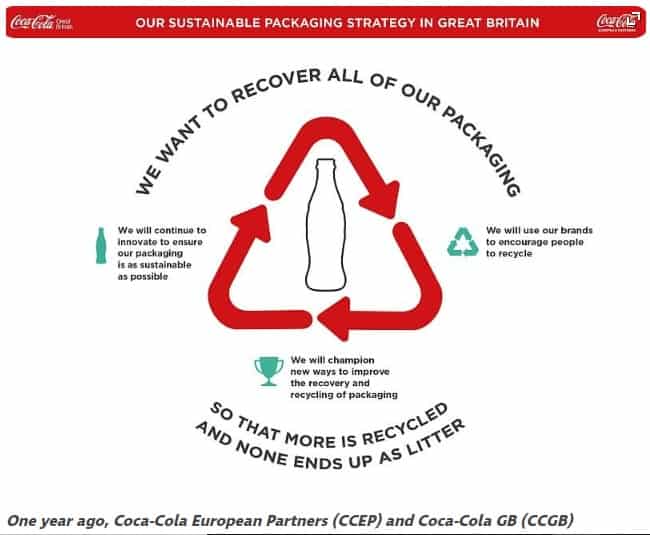
Accessories line uses recycled PET
In its pursuit of sustainable manufacturing, Loftex is introducing two new qualities of throws made with recycled plastic PET.
Best known in the U.S. for its towels, the manufacturer has also produced throws for many years.
Plastic to Plush collection throws are made of recycled polyester from plastic that would otherwise end up in a landfill. The recycled polyester uses the ADNAS Certain T molecular tagging platform, which assures the consumer of recycled authenticity. In addition, the throws are made under the Oeko-Tex Standard 100 certification, which verifies that products are made without the use of harmful chemicals.
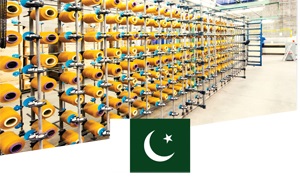
Borealis and Indorama have signed a commitment to reduce global plastic waste and apply more transparency to their plastics production figures, a report by the Ellen MacArthur Foundation said on Thursday.
The Foundation, in collaboration with UN Environment, has collated information in a bid to improve transparency of what is being done to tackle plastic waste and pollution.
Indorama Ventures and Borealis have revealed their 2025 targets to increase the use of post-consumer recycled plastic, joining more than 150 businesses who also signed the pledge.
By signing the commitment, the companies have agreed not only to endorse the global commitment and publicise 2025 targets, but must report publicly report on progress towards these targets on an annual basis.

Four of the world’s largest consumer goods companies produce 6 millions of tons of plastic waste every year, the companies revealed in a report published Thursday.
Coca-Cola, Mars, Nestle and Danone are responsible for 6 million metric tons of plastic every year, according to company-provided figures in a report from the Ellen MacArthur Foundation. Coca-Cola alone produces 3 million tons.
It’s the first time Coca-Cola has been public about its packaging production.
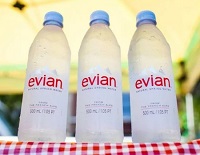
Croda will be selling to end products including treated fabrics and fibres for use in apparel, home textiles and furniture products. © Microban
Croda will be selling to end products including treated fabrics and fibres for use in apparel, home textiles and furniture products. © Microban
Microban, a leader in antimicrobial and odour control and prevention solutions, has reached an agreement with Croda International for the selling of Microban technologies in Southeast Asia. The company will offer Microban’s full portfolio of antimicrobial and odour control technologies, including Scentry, Scentry Revive, AEGIS, ZPTech and SilverShield to customers in India and Indonesia.
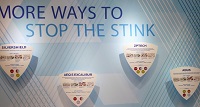
ATS events have been called key a destination by sourcing professionals and buyers throughout the apparel supply chain. © ATS
ATS events have been called key a destination by sourcing professionals and buyers throughout the apparel supply chain. © ATS
What started as a trade show in Toronto in 2016 has become the fastest growing fashion industry sourcing trade show organiser in the world. Apparel Textile Sourcing (ATS) expanded to Miami in 2017, filling a void for the industry focused on Latin America manufacturing. ATS events have now been called key a destination by sourcing professionals and buyers throughout the apparel supply chain.
The event now brings its world-class seminar series and hand-selected exhibitors to the European market for the launch of Apparel Textile Sourcing Germany (ATSG) at the Estrel Convention Center in Berlin, from 11-13 September.
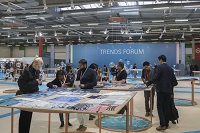
Transparency Market Research delivers crucial insights on the PET bottles market in its published report, titled “PET Bottles Market: Global Industry Analysis, Size, Share, Growth, Trends and Forecast, 2018-2027”. In terms of revenue, the global PET bottles market is projected to expand at a CAGR of 4.1% during the forecast period, owing to numerous factors, about which TMR offers thorough insights and forecasts in this report.
Polyethylene terephthalate (PET) is a widely used plastic across the globe. PET bottles can be manufactured by two types of molding methods, namely – one step and two-step. PET bottles are highly consumed product in the packaging industry owing to the rising demand from food & beverages, personal care & cosmetics, pharmaceuticals, and other end-use sectors. PET bottles find useful applications in various end-use industries.
